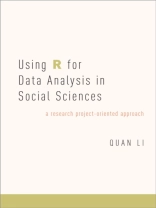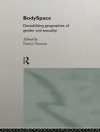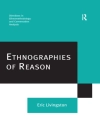Statistical analysis is common in the social sciences, and among the more popular programs is R. This book provides a foundation for undergraduate and graduate students in the social sciences on how to use R to manage, visualize, and analyze data. The focus is on how to address substantive questions with data analysis and replicate published findings. Using R for Data Analysis in Social Sciences adopts a minimalist approach and covers only the most important functions and skills in R to conduct reproducible research. It emphasizes the practical needs of students using R by showing how to import, inspect, and manage data, understand the logic of statistical inference, visualize data and findings via histograms, boxplots, scatterplots, and diagnostic plots, and analyze data using one-sample t-test, difference-of-means test, covariance, correlation, ordinary least squares (OLS) regression, and model assumption diagnostics. It also demonstrates how to replicate the findings in published journal articles and diagnose model assumption violations. Because the book integrates R programming, the logic and steps of statistical inference, and the process of empirical social scientific research in a highly accessible and structured fashion, it is appropriate for any introductory course on R, data analysis, and empirical social-scientific research.
Quan Li
Using R for Data Analysis in Social Sciences [PDF ebook]
A Research Project-Oriented Approach
Using R for Data Analysis in Social Sciences [PDF ebook]
A Research Project-Oriented Approach
Cumpărați această carte electronică și primiți încă 1 GRATUIT!
Limba Engleză ● Format PDF ● Pagini 224 ● ISBN 9780190656232 ● Editura Oxford University Press ● Publicat 2018 ● Descărcabil 3 ori ● Valută EUR ● ID 7357406 ● Protecție împotriva copiilor Adobe DRM
Necesită un cititor de ebook capabil de DRM












